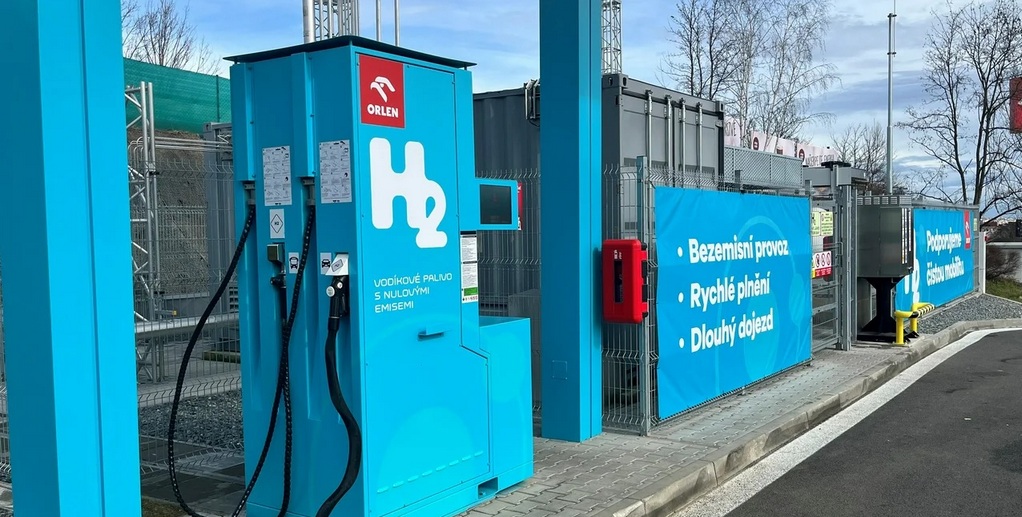Prague’s first hydrogen fueling station was ceremoniously unveiled in Barrandov by local officials including Czech Transport Minister Martin Kupka. It’s just the second hydrogen fueling station in the country, following a station that opened in Ostrava last year.
The country plans to establish 12 hydrogen stations across the country by 2025 and 40 by 2030. The Czech Republic currently has CZK 6 billion reserved for investing in alternative fuel infrastructure, and that number will increase greatly by the end of the decade.
Prague’s new hydrogen station in Barrandov is operated by ORLEN Benzina, part of the Unipetrol group, and the company plans to establish a total of 28 stations over the next eight years. They next plan to open a hydrogen station in Litvínov later this year.
According to ORLEN, refueling a car with hydrogen takes about 3-5 minutes, which is significantly faster than recharging an electric vehicle. The hydrogen at their new station runs CZK 278 per kilogram; a car can drive about 100 kilometers on one kilogram of hydrogen, and current models can hold about 5-6 kilograms of hydrogen.
Efforts to improve the Czech Republic’s alternative fuel infrastructure align with the latest drafts of EU clean fuel regulations, which stipulate that a hydrogen refueling station must be built at least every 200 kilometers of major (TEN-T) roads.
The first station in Prague will service a small number of customers for now. There are currently about 10 hydrogen-powered Toyota Mirai vehicles in the country, as well as a hydrogen-powered truck driven by logistics company Zásilkovna.
Hyundai also retails a new hydrogen-powered car, and Prague’s public transport authority DPP plans to begin test drives with a hydrogen-powered bus later this spring. According to the Czech Transport Ministry, an expected 50,000 hydrogen-powered vehicles will be driving in the country by 2030.
Tags: Hydrogen, ORLEN, Prague



Recent Posts
Report Highlights Pathway for Electrifying Nigeria’s Container Trade Sector
South Korean Company YPP Plans to Invest up to $3.1 Billion in Green Hydrogen Production in Kazakhstan
WattEV Expands Electric Truck Charging Network with Three New Depots in California
Anemoi Develops New Method to Accurately Measure Wind-Assisted Propulsion Benefits
Navigator Holdings and Amon Maritime Form Joint Venture for Ammonia-Fuelled Carrier Fleet
Hygenco Commissions Maharashtra’s First Green Hydrogen and Oxygen Facility to Power STL’s Net Zero Goals
India Invites Second Round of R&D Proposals Under ₹4 Billion Green Hydrogen Mission
BMTC Adds 148 Tata Electric Buses to Bengaluru Fleet, Strengthens Green Mobility Drive